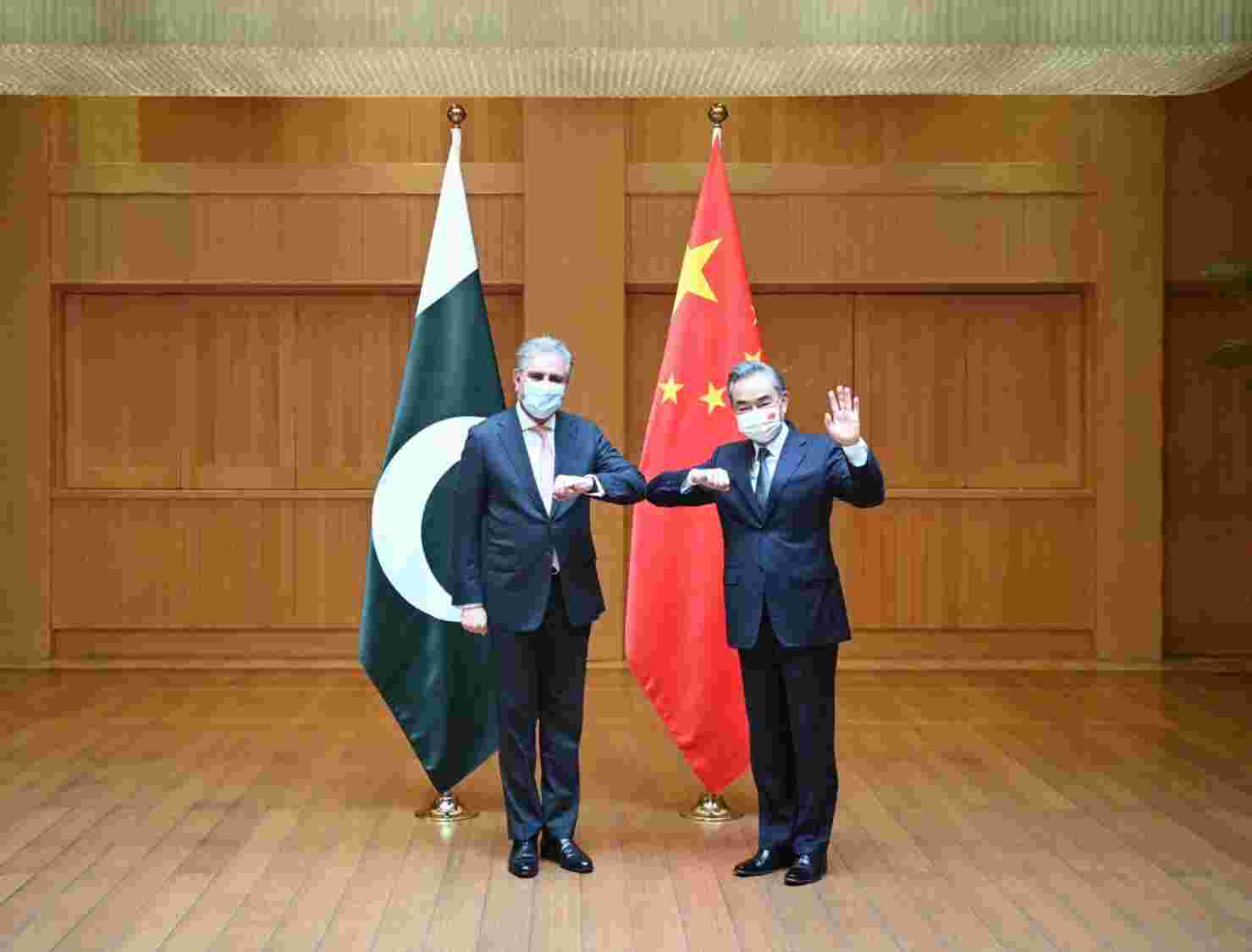Growing nexus
The Chengdu Security dialogue between China and Pakistan becomes significant in the context of current political turmoil in Afghanistan

Visiting of Pakistani leaders to China at a regular interval has been a routine affair. Whether the Pakistani political leadership under former PM Nawaz Sharif paying a visit (more of obeisance) to Beijing in 1998 after the Pokhran blast, ostensibly for seeking guidance for a reprisal to India or President Musharraf intermittently visiting to keep the Chinese hierarchy in good humour as a fair friend or an all-weather friend, has become run of the mill. The analysts and Sino-Pak watchers are also used to such 'business-as-usual' trips and seem disinterested to comment or try to read between the lines of any bilateral meeting between China and Pakistan.
However, the emerging trend does not merit to be ignored. The Sino Pak two-way visits are now taking place especially in light of the dismal political and military situation in Afghanistan and Pakistan's directionless approach to deal with the impending vacuum as foreseen after the US troops withdrawal from Afghanistan and the Taliban's striking advances threatening the future of social and political fabric of the war-torn country.
Against this backdrop, the most recent security dialogue held in Chengdu, China, offers a fresh impetus in the Sino-Pak ties. On July 24 — through a joint statement — both countries vowed to work more closely amid the rapidly changing military and political landscape in Afghanistan.
The self-proclaimed suave, but garrulous and unpredictable Foreign Minister, Shah Mahmood Qureshi, who led the Pakistani delegation, met the Chinese Foreign Minister Wang Yi and initiated a five-point Action Plan. During his conversation with SM Qureshi, Wang Yi described the US withdrawal from Afghanistan as hasty. In his blistering anti-US attack, Yi further stated that the withdrawal did not at all help end the terror but created what he termed a new 'black security hole'. He did not miss out on the opportunity to thank Pakistan for its support to Chinese establishment in effectively dealing with the menace of the East Turkestan Islamic Movement for fomenting terror in the Xinjiang region. In the same breath, the Chinese Foreign Minister condemned the spate of terror attacks in Pakistan, particularly referring to the recent case of terror assault in which nine Chinese engineers had also died.
Significantly, both the leaders focused more on the China-Pakistan Economic Corridor (CPEC). Wang Yi assertively said that despite India's vehement opposition, the project has moved forward and its prospects are very bright and in the interest of both countries. There was also a customary reference to Kashmir; Shah Mahmood Qureshi utilised the opportunity to highlight the alleged highhandedness of the Indian security forces in Kashmir, including the change in its administrative status and initiation of a delimitation process, perceived by them to be against the Kashmiris. China pledged — as it has done in the past on several occasions — absolute support to Pakistan in its expression of 'solidarity'. The insinuation is loud and clear and needs no elaboration. It is more so because Qureshi is believed to have carried a secret dossier on Kashmir, prepared by the Pakistan Inter-Services Intelligence (ISI), carrying sensitive information related to the latest developments in Kashmir and Afghanistan.
On his return to Pakistan, Qureshi claimed that the relations between the two countries have become stronger than before. In the 'strategic' security dialogue, both sides decided to be friends forever, both will work for greater cooperation with renewed vigour. He further claimed that Afghanistan, Pakistan and China were on the same page. This must however be seen as disinformation, precisely because — as the analysts say — Afghanistan is certainly not on the same page with its immediate neighbour Pakistan. This does not require any evidence. In the recently held Tashkent meeting, Afghan President Ashraf Ghani, in the presence of Pakistani Prime Minister Imran Khan, lashed out at Pakistan, accusing it of transporting more than 10,000 jihadis into Afghanistan. He even abetted terrorism on Afghan soil. No more argument is needed to support the claim that they are not on the same page.
The writer is a retired IPS officer, a security analyst and a former National Security Advisor to the PM of Mauritius. Views expressed are personal



